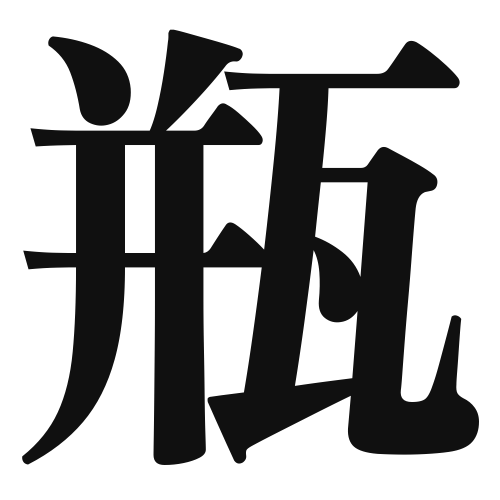1. Overview of Meaning
The kanji “瓶” (pronounced “bin” in Japanese) means “bottle.” It refers to a container, typically made of glass or plastic, used for storing liquids.
2. Formation and Radical
The kanji “瓶” is a compound character (会意文字) that combines two elements: the radical for “container” (皿) and the phonetic component “平” (which suggests the sound). The radical indicates that it is related to objects that hold or contain something.
3. Examples of Usage
Common words and phrases that include “瓶” are:
- 水瓶 (みずびん, mizubin) – water bottle
- ワイン瓶 (わいんびん, wainbin) – wine bottle
Example sentence in daily conversation:
「この水瓶はとても重いです。」 (This water bottle is very heavy.)
4. Synonyms and Antonyms
Similar kanji with related meanings include:
- 容器 (ようき, youki) – container (a more general term)
Antonyms include:
- 空 (から, kara) – empty (indicating the absence of contents)
5. Cultural and Historical Background
The kanji “瓶” is significant in Japanese culture, especially in the context of traditional sake (rice wine) storage. Bottles are often used in ceremonies and celebrations.
Proverbs and idiomatic expressions related to “瓶” include:
- 「瓶の中の水」 (びんのなかのみず, bin no naka no mizu) – water in a bottle, often used metaphorically to describe something that is contained or limited.
